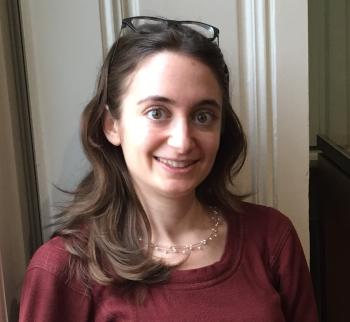
Natalie Joelle is a prize-winning scholar and Arts and Humanities Research Council doctoral researcher, creative and activist at Birkbeck, University of London publishing in the environmental humanities, vegan theory and research as practice.
Natalie is a second-generation vegan radical feminist born and raised in London in a family steeped in alternative education cultures and deschooling. As a youth activist she leafleted in support of the McLibel campaign, wrote about veganism in popular culture for a children’s magazine, founded the radical philosophy discussion group Quiet Revolution, and created spaces online to disseminate vegan straight edge punk counterculture. As a first-generation working class and multiply marginalised university student studying English at Emmanuel College, Cambridge, she found the natural extension of her necessary self-advocacy and commitments in critical reading under the direction of environmentalist Robert Macfarlane, campaigning for vegan catering and offering DIY alternative spaces for communal dining.
On her return to London, she co-convened the speaker series for a leading vegan organisation, before finding her vegan activist spiritual home founding and facilitating the reading group as part of the vegan engaged Buddhist St Margaret’s House Settlement Charity’s arts offer at The Gallery Café. She directed this project of creating a place for radical readings of pro-animal and environmental literature in the community for over ten years whilst supporting others to facilitate its ongoing meetings.
After learning the foundations of how to cook and distribute food at scale in activist and professional kitchens, Natalie went on to co-found the ‘To many cooks: boil the broth’ food share events in partnership with vegan food education charity Made in Hackney and veganarchist co-op Black Cat. This project grew into a series of experimental eco arts events that found a more local home at her allotment, involving many hands tending home grown and foraged foods in a large dutch oven over an open fire and a lot of playfulness set in an environment shaped by learning from The Vegan Organic Network and the work of veganic co-op Organiclea.
Over the last fifteen years, Natalie has been particularly interested in the arts of gleaning, which she has pursued though postgraduate education in Culture and Critical Studies at Birkbeck, University of London, followed by returning to Cambridge for art historical research supported by The James Stuart Bursary. She then took up a doctoral scholarship at Birkbeck for transdisciplinary English and Environmental Humanities studies under the supervision of poet Carol Watts, funded by the School of Arts and the AHRC.
Natalie's work has been praised as contributing an original theoretical approach for the emerging field of vegan theory (Wright 2017) and offering ‘an act of vegan resistance’ (Quinn and Westwood 2018). Her writing practice is described as ‘seething with energy’, keeping ‘language malleable and alive’ (Tarlo 2017) through ‘taking for free what is rightfully ours’ (Angell 2019) and ‘with enormous care […] sifting for evidence of a threatened way of life’ (Eaves 2021). Throughout her work that develops the approach she calls ‘gleanologics’, Natalie creates subversive practices that liberate lives from the multiple oppressions of our contemporary lean culture’s increasing management of everyday life to do more and more with less and less.
Her writing on radical veganism, gleaning, and the threats of lean thinking can be found in Interdisciplinary Studies in Literature and Environment, The Goose, DATABLEED, Plumwood Mountain
and as part of the Routledge Environmental Humanities and Palgrave Studies in Animals and Literature series, including Thinking Veganism in Literature and Culture: Towards a Vegan Theory ed. by Emelia Quinn and Benjamin Westwood (2018). Work in press includes a formally experimental article writing on and through THE MILITANT VEGAN zine as part of the upcoming Militant Ecopoetics issue of Green Letters.
Natalie is currently working on the manuscript of her first poetry collection gLeans, which was longlisted for the Europe-wide Ivan Juritz Prize for Creative Experiment in 2021, and completing an artist’s book twentysix g lean stations, funded by the Experimental Humanities Research Network. She is also beginning work on the manuscript of her first monograph, a work of experimental creative-critical theory provisionally titled Gleanologics.
Natalie’s recent work has included being a British Research Council Fellow of the Kluge Centre, Library of Congress, lecturing and training in adult education and for the NHS, appointed service on national advisory boards in the education and neurodivergent research sectors, and contributing her lived experience to Autistic and disability arts activism, including mindful collaboration with the environmental artist Hendl H. Mirra.
Natalie’s work has been generously supported by the AHRC Doctoral Training, Research Travel and International Fellowship Programmes, The Disabled Students' Allowance, Sterling College, Birkbeck School of Arts, and The Fund for Women Graduates.
More information about Natalie’s work, including copies of publications, is available at www.gleaning.info.

